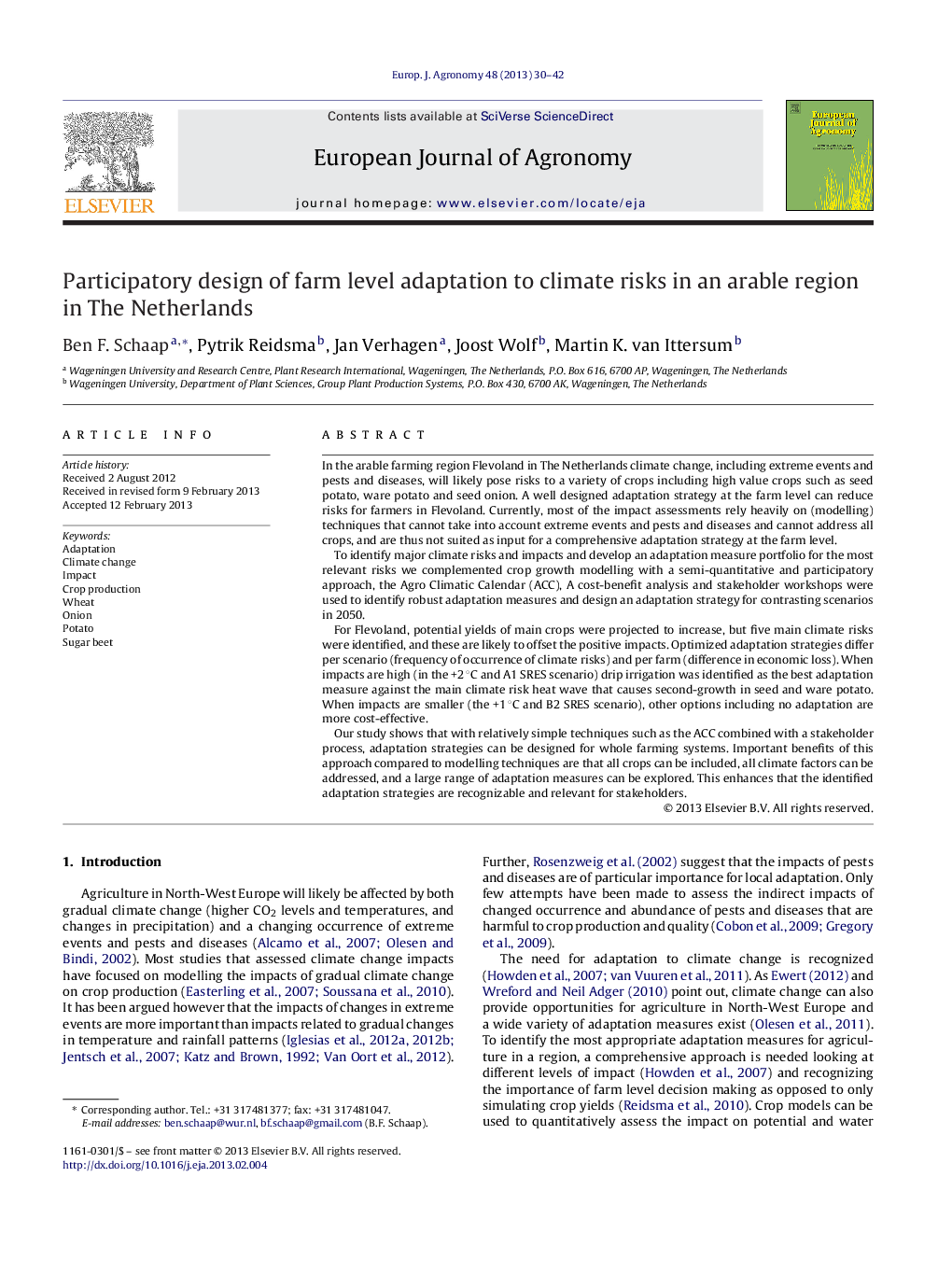| کد مقاله | کد نشریه | سال انتشار | مقاله انگلیسی | نسخه تمام متن |
|---|---|---|---|---|
| 4509074 | 1624478 | 2013 | 13 صفحه PDF | دانلود رایگان |

In the arable farming region Flevoland in The Netherlands climate change, including extreme events and pests and diseases, will likely pose risks to a variety of crops including high value crops such as seed potato, ware potato and seed onion. A well designed adaptation strategy at the farm level can reduce risks for farmers in Flevoland. Currently, most of the impact assessments rely heavily on (modelling) techniques that cannot take into account extreme events and pests and diseases and cannot address all crops, and are thus not suited as input for a comprehensive adaptation strategy at the farm level.To identify major climate risks and impacts and develop an adaptation measure portfolio for the most relevant risks we complemented crop growth modelling with a semi-quantitative and participatory approach, the Agro Climatic Calendar (ACC), A cost-benefit analysis and stakeholder workshops were used to identify robust adaptation measures and design an adaptation strategy for contrasting scenarios in 2050.For Flevoland, potential yields of main crops were projected to increase, but five main climate risks were identified, and these are likely to offset the positive impacts. Optimized adaptation strategies differ per scenario (frequency of occurrence of climate risks) and per farm (difference in economic loss). When impacts are high (in the +2 °C and A1 SRES scenario) drip irrigation was identified as the best adaptation measure against the main climate risk heat wave that causes second-growth in seed and ware potato. When impacts are smaller (the +1 °C and B2 SRES scenario), other options including no adaptation are more cost-effective.Our study shows that with relatively simple techniques such as the ACC combined with a stakeholder process, adaptation strategies can be designed for whole farming systems. Important benefits of this approach compared to modelling techniques are that all crops can be included, all climate factors can be addressed, and a large range of adaptation measures can be explored. This enhances that the identified adaptation strategies are recognizable and relevant for stakeholders.
► Agro Climatic Calendar allows to identify main climate risks and all relevant adaptation measures for all crops.
► Crop growth modelling is complemented with a semi-quantitative and participatory approach.
► A cost-benefit analysis and stakeholder workshops are used to identify robust adaptation measures.
► Adaptation strategies can be designed with relatively simple techniques and a stakeholder process.
► Identified adaptation strategies are directly recognizable and relevant for stakeholders.
Journal: European Journal of Agronomy - Volume 48, July 2013, Pages 30–42